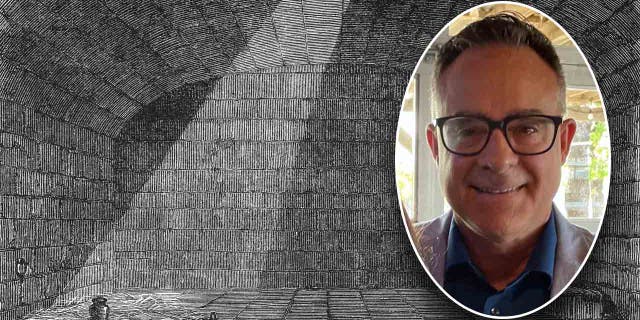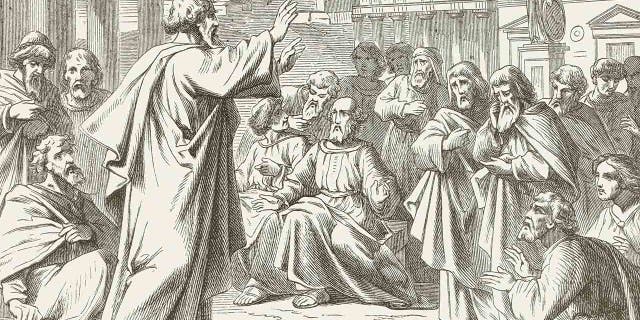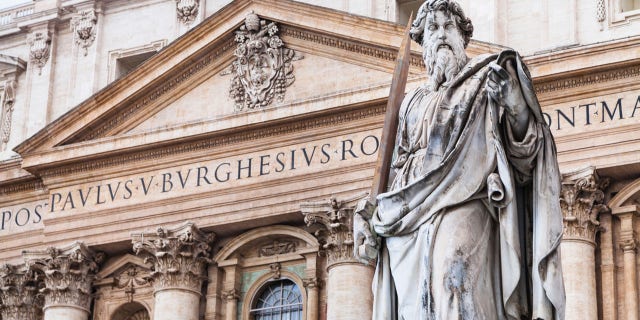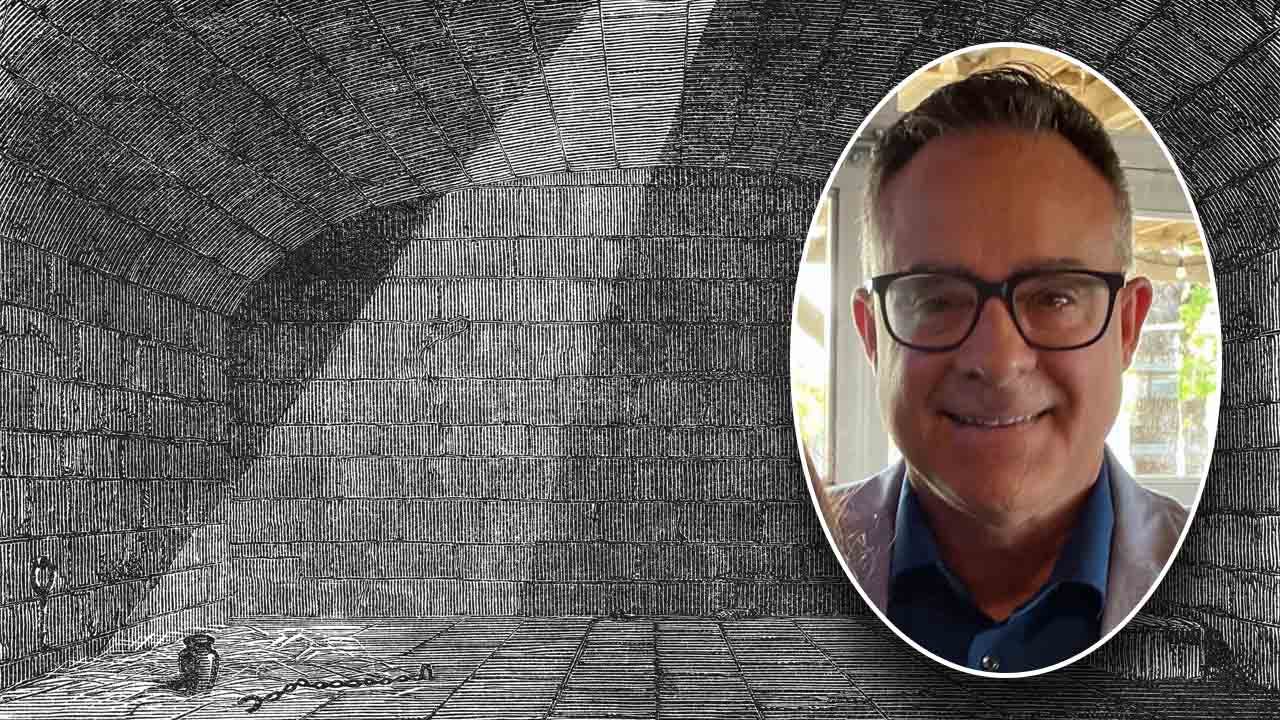“But none of these things move me; nor do I count my life dear to myself, so that I may finish my race with joy, and the ministry which I received from the Lord Jesus, to testify to the gospel of the grace of God” (Acts 20:24).
This verse comes from the Acts of the Apostles, the fifth book of the New Testament. The book is traditionally attributed to St. Luke the Evangelist, according to the website BibleGateway.
In the book, “Luke has provided a broad survey of the church’s development from the resurrection of Jesus to Paul’s first Roman imprisonment, the point at which the book ends,” said the same source.
“In telling this story, Luke describes the emergence of Christianity from its origins in Judaism to its position as a religion of worldwide status and appeal,” the site added.
‘COURAGE’ IS AN INVITATION TO TRUST THE LORD FULLY, SAYS WASHINGTON, DC-BASED FRIAR
In this particular verse, the Apostle Paul speaks about his upcoming suffering and imprisonment, said Jon Bell, senior pastor at Calvary Chapel in Flower Mound, Texas, to Fox News Digital.
“The verse reveals the heart of Paul and the secret of joy,” said Bell. “How can one have joy when all seems lost? How can one have hope when the future seems bleak?”

St. Paul was imprisoned in Rome’s Mamertine Prison (illustrated here) before his death. His ability to feel joy while in prison came from his faith in Christ, said Pastor Jon Bell (shown in inset). (iStock/Pastor Jon Bell)
“Paul,” explained Bell, “shows us the secret of joy.”
In beginning with “none of these things move me,” Paul was indicating that regardless of circumstance, he’s still the same person, said Bell.
“Whether good times or bad, he has learned to be stable through all. This is important to understand, yet impossible to accomplish,” said Bell.
“Yet Paul truly was stable in the face of torture, imprisonment and death.”
DIVINE NATURE OF JESUS REVEALED IN THE TRANSFIGURATION, SAYS NORTH CAROLINA PRIEST: ‘GLORY OF GOD’
Human beings must realize that they are in need of a “stability that is not conditional upon circumstances, but independent of them,” he also said.
Additionally, Paul’s declaration that he “doesn’t count his life dear to himself” showed that he was “not holding onto anything that could be lost,” said Bell.

The Acts of the Apostles are attributed to St. Luke the Evangelist. This book of the New Testament concludes with Paul’s first Roman imprisonment. (iStock)
“He had a dependence upon that which could never be lost: Jesus Christ. He had turned over all rights to himself over to God and therefore was able to rest in God’s lap,” said Bell.
This is true for Christians as a whole, he added.
GOD’S TIMING IS PERFECT, EVEN WHEN THINGS SEEM TO GO WILDLY WRONG, SAYS WASHINGTON PASTOR
“The more we hold onto our life, the more we are attached to changing circumstances. It is impossible to have true joy until we detach from ourselves and attach to God,” said Bell.
“A life lived for God’s glory and under his direction will result in joy.”
By Paul’s declaration that he “may finish my race with joy,” he was stating that “there is a direct relationship between joy and losing our lives to God,” Bell revealed.

St. Paul knew that his persecution, imprisonment and death was all part of God’s plan for his ministry, said Pastor Jon Bell of Flower Mound, Texas. (iStock)
“Lastly, Paul says he doesn’t count his life dear to himself, not only so he could finish his race with joy, but also, ‘the ministry which I received from the Lord Jesus,’” he said.
Knowing that “our joy comes from living for God and fulfilling the ministry he has given us” is “the last piece of the puzzle,” said Bell.
CLICK HERE TO SIGN UP FOR OUR LIFESTYLE NEWSLETTER
“That’s why Paul could be grateful in prison, being stoned, persecuted, arrested and tried. He saw everything, even that which would seem bad, in the context of God’s plan,” said the pastor.
Paul’s persecution, arrest, imprisonment and death were the completion of his ministry — “and that was what he saw life to be about.”

St. Paul fully resigned himself to God’s plan, which is why he was able to feel joy in prison, said Pastor Jon Bell of Calvary Chapel. (iStock)
Paul “lived for something bigger and better than himself, which in turn was also the best for himself. His life was meaningful, and nothing was ever lost or taken away because all was given to God,” said Bell.
“Joy flowed from Paul like a whitewater rapid because he was God’s, and therefore, joy was his and it can be yours also,” he said.
CLICK HERE TO GET THE FOX NEWS APP
“Joy is vital and is directly related to your relationship with Jesus,” said Bell, referring to the faithful.
“A life lived for God’s glory and under his direction will result in joy. This is why we are here and where we find fulfillment.”
